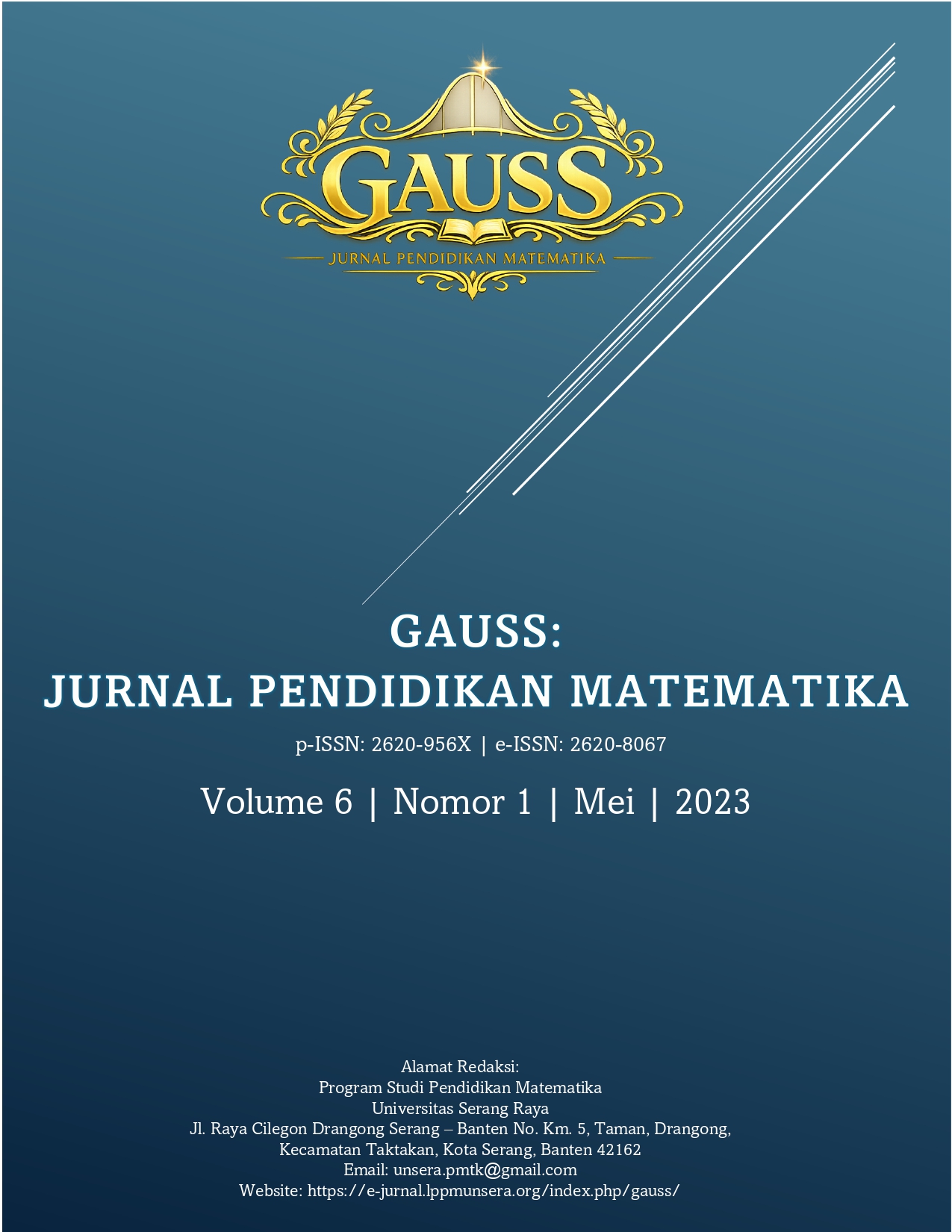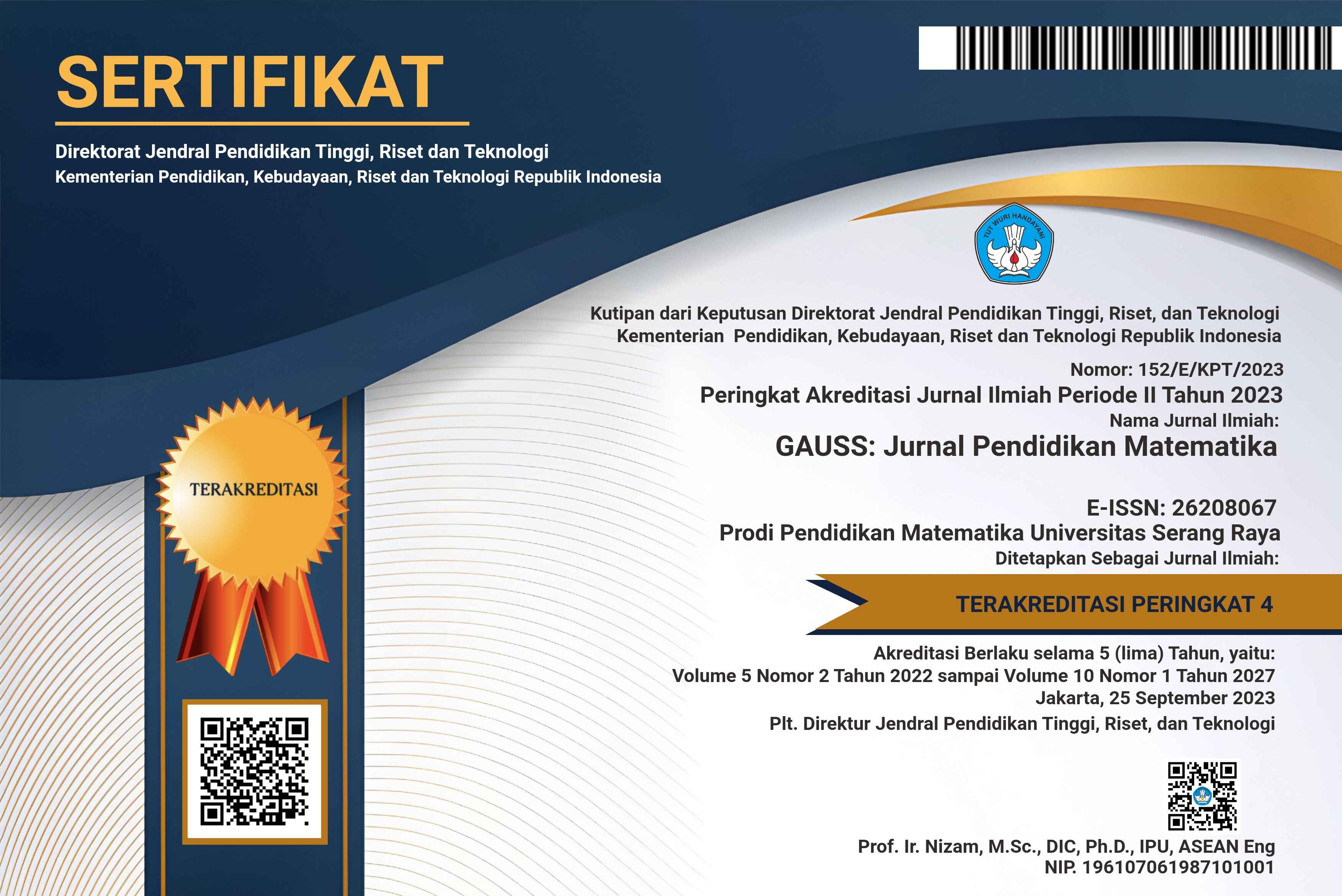Analisis Pemahaman Konsep Matematika Siswa Kelas VII berdasarkan Taksonomi Solo (Structure Of Observed Learning Outcomes) pada Materi Perbandingan
DOI:
https://doi.org/10.30656/gauss.v6i1.5441Abstract
Abstrak
Pemahaman konsep matematika terlihat dari cara berpikir siswa dalam menyelesaikan masalah matematika. Mulai dari cara menuliskan langkah-langkah penyelesaian, jawaban akhir, sampai kepada mendapatkan alternatif penyelesaian masalah. Penelitian ini dilakukan di SMP Negeri 1 Malaka Timur dan bertujuan untuk menganalisis sejauh mana pemahaman konsep matematika yang diklasifikasikan dari level berpikirnya berdasarkan taksonomi SOLO. Pengambilan data dilakukan dengan memberikan tes pemahaman konsep pada 18 siswa Kelas VII kemudian dilakukan reduksi data dan dipilih 5 responden yang mewakili masing-masing level berpikir. Hasil penelitian menunjukkan subjek 1 memiliki level berpikir prastruktural dan tidak memenuhi indikator pemahaman konsep, subjek 2 memiliki level berpikir unistruktural dan memenuhi salah satu indikator pemahaman konsep, subjek 3 memiliki level berpikir multistruktural dan memenuhi dua indicator pemahaman konsep, subjek 4 memiliki level berpikir relasional dan memenuhi semua indikator pemahaman konsep dan subjek 5 merupakan level berpikir extended abstract dan memenuhi semua indicator pemahaman konsep.
Kata kunci: level berpikir, pemahaman konsep matematika, taksonomi SOLO
Downloads
Published
Issue
Section
License
Authors who publish articles in GAUSS : JURNAL PENDIDIKAN MATEMATIKA agree to the following terms:
- Authors retain copyright and grant the journal the right of first publication with the work simultaneously licensed under a Creative Commons Attribution-ShareAlike 4.0 International License that allows others to share the work with an acknowledgment of the work's authorship and initial publication in this journal.
- Authors are able to enter into separate, additional contractual arrangements for the non-exclusive distribution of the journal's published version of the work (e.g., post it to an institutional repository or publish it in a book), with an acknowledgment of its initial publication in this journal.
- Authors are permitted and encouraged to post their work online (e.g., in institutional repositories or on their website) before and during the submission process, as it can lead to productive exchanges, as well as earlier and greater citation of published work (See The Effect of Open Access).




